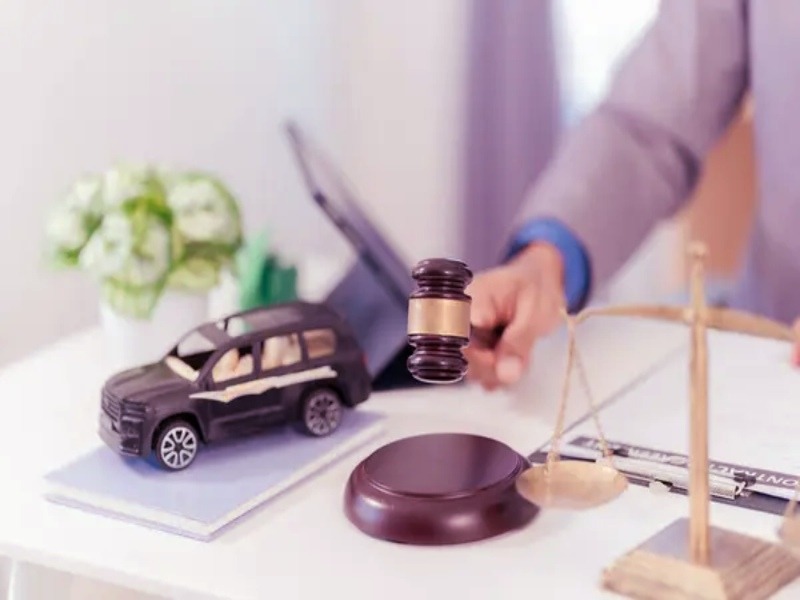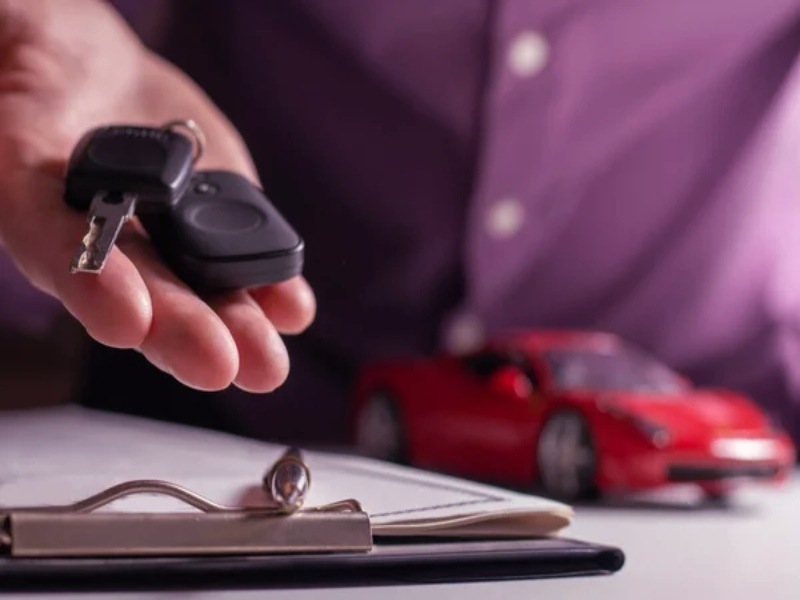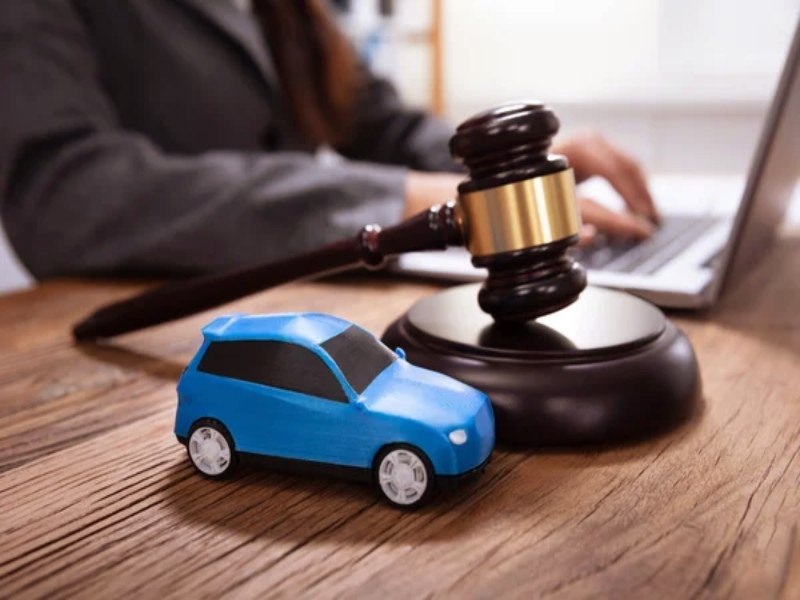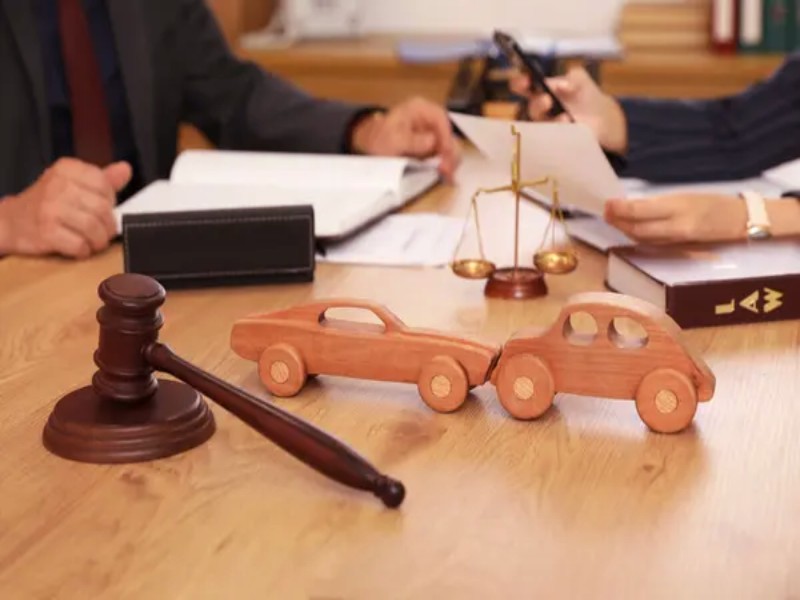Lemon Law Lawyer California: Expert Attorneys for Your Claims
Purchasing a vehicle is often one of the most significant investments we make, but what happens when that investment turns sour? For many Californians, dealing with persistent car troubles can feel like an uphill battle—especially when your vehicle refuses to cooperate despite repeated trips to the dealer. That’s where the California Lemon Law comes in, serving as a shield for consumers against defective cars. In this article, we’ll explore how lemon law lawyers can help you navigate this complex process, ensuring that you understand and assert your rights effectively. Whether you’ve experienced blending frustrations or are simply curious about your options, you’ll find valuable insights here to empower your journey through lemon law claims.
To find a qualified lemon law lawyer in California, you can start by researching reputable law firms that specialize in consumer protection and lemon law cases, reviewing client testimonials, and checking their success rates. It is also advisable to schedule consultations with potential lawyers to discuss your specific case and ensure they have the expertise necessary to represent you effectively.
Understanding California’s Lemon Law
California’s Lemon Law, or the Song-Beverly Consumer Warranty Act, is not just a legal technicality; it’s a lifeline for consumers caught in the frustrating cycle of car repairs. It provides essential rights aimed at ensuring that when we invest in a vehicle—whether new or used—we receive a product that functions as promised. The heart of this law lies in its clear stipulation: if your vehicle proves defective and can’t be fixed after a reasonable number of repair attempts, you have the right to a refund or a replacement.
But what exactly qualifies as a “reasonable number” of repairs? Generally, this can mean two to four attempts depending on the severity of the defect. If your car frequently breaks down or malfunctions, it’s crucial to document each instance and repair attempt. This documentation will form the backbone of your case should you need to make a claim.

Alarmingly, approximately 65% of consumers are unaware of the protections provided by the Lemon Law, according to data from the California Department of Consumer Affairs. This lack of awareness means many individuals may remain stuck with malfunctioning vehicles simply because they don’t understand their rights.
Imagine this scenario: You purchase a brand-new sedan, only to experience persistent electrical issues that leave you stranded more than once. Each time you visit the dealership, you bring detailed records reflecting your experiences. Under these circumstances, you would likely be eligible for compensation under the Lemon Law.
Now that we’ve defined key aspects and implications, understanding who benefits from these protections is crucial for every consumer navigating the purchase or lease of a vehicle in California. There’s more to explore regarding the specific safeguards available for consumers dealing with these challenges.

Protection Under the Lemon Law
The California Lemon Law Lawyer extends its protective umbrella over a variety of vehicles, ensuring that consumers are not left helpless when faced with faulty automobiles. It applies chiefly to passenger vehicles, pickup trucks, SUVs, motorcycles, and even recreational vehicles (RVs) that are still under the manufacturer’s warranty.
This breadth means that many drivers can seek redress for their issues, provided their purchase or lease was primarily for personal, family, or household use. In simple terms, if you bought a car to take your kids to school, you’re likely covered; however, if it was intended for commercial purposes, then the law does not apply.
What this legislative framework does is empower individuals by holding manufacturers accountable for their products. If your vehicle has significant defects that impair its use or safety and those problems emerge after just a few attempts at repair, the Lemon Law steps in offering remedies. This can mean a full refund or a replacement vehicle at no extra cost. Imagine the relief felt by individuals like Sarah from Los Angeles who found herself struggling with recurring engine problems in her newly purchased truck. Despite feeling overwhelmed initially, she discovered that the Lemon Law had her back. With the help of a knowledgeable lemon law attorney, she successfully obtained compensation from the dealer.
The Lemon Law isn’t just about protecting individual consumers; it serves as a powerful deterrent against manufacturers who might otherwise cut corners on quality.
Understanding these protections is vital, but navigating the legal environment can be daunting without professional assistance. Specialized attorneys play a crucial role in helping consumers assert their rights and pursue claims effectively.

Role of a Lemon Law Lawyer
A Lemon Law lawyer acts as your champion when dealing with what can often feel like a maze of regulations and paperwork. They are well-versed in the legal intricacies surrounding consumer rights, ensuring that every aspect of your case is addressed meticulously.
For instance, they will take the time to examine repair records thoroughly, leaving no stone unturned to establish a clear narrative of your vehicle’s shortcomings. This analysis isn’t just about flipping through pages; it’s about connecting the dots between the recurring issues and demonstrating how they violate the terms of your purchase agreement.
Communication is another vital aspect of their role.
These attorneys serve as your bridge to manufacturers, navigating negotiations without you having to face those intimidating corporate lawyers alone. When you have someone who understands not only the law but also the industry’s inner workings on your side, it creates a formidable presence during discussions.
Lawyers possess the necessary skills to articulate your position clearly and powerfully, ensuring that your voice isn’t drowned out by the clamor of corporate jargon.
Some individuals might feel confident enough to tackle these conversations alone or underestimate the complexity involved, believing that waiting until after a claim denial is enough. However, having an attorney involved from the outset can significantly enhance your case’s success rate.

The statistics speak volumes: According to the California Bar Association, 78% of Lemon Law cases settled faster when a lawyer was involved right from the beginning. This insight underscores the importance of not only having legal representation but having it early in the process.
Moreover, experience plays a crucial role in what makes these attorneys effective at their jobs.
A well-practiced Lemon Law lawyer knows how to identify key evidence that may be overlooked by an untrained eye—like specific repairs that should raise red flags or patterns in service history that point towards underlying systemic defects. Their expertise equips them to present a compelling case that aligns your experiences with established legal standards for lemon vehicles.
This specialized knowledge allows them to effectively advocate for your rights as a consumer facing frustrating vehicle issues while navigating complex negotiations and statutes seamlessly into a comprehensive strategy for resolution.
As we continue, we will shed light on how this expertise shines through when addressing specific vehicle flaws and violations.

Expertise in Vehicle Defects
Understanding the intricacies of vehicle defects is essential for any Lemon Law lawyer. This specialized knowledge allows attorneys to assess whether a client’s car problems truly qualify under California’s Lemon Law. A lawyer who regularly deals with automotive issues possesses insights that can streamline the process, ensuring clients receive the compensation they deserve. The vehicle’s design and mechanics are complex—knowing these subtleties makes a substantial difference when building a case.
Different types of defects require tailored approaches. For instance, an attorney well-versed in engine malfunctions will likely be more effective dealing with powertrain defects, as opposed to one specializing in electrical system failures. Each area has its unique quirks and challenges, from diagnosing chronic oil leaks to understanding how dashboard electronics interface with the vehicle’s systems. This depth of knowledge makes it easier for lawyers to pinpoint specific flaws and argue their significance convincingly.
This expertise not only helps in identifying if the car is indeed a “lemon,” but also assists in gathering compelling evidence and expert testimonies that strengthen the client’s position.
Consider John’s journey: he faced relentless transmission problems with his sedan, often finding himself stuck at the dealership for repairs that didn’t resolve the issue. However, it was through consulting an attorney experienced in mechanical defects that John quickly saw resolution. His attorney understood the common pitfalls involved with transmissions, navigated the complexities of his case effectively, and fought for John’s rights under the law. John’s story highlights how crucial it is to have specialized knowledge on your side when dealing with potentially life-altering vehicle issues.

Seeking legal expertise in vehicle defects isn’t merely beneficial—it is essential for achieving successful outcomes in Lemon Law claims. By leveraging this specialized knowledge, lawyers can swiftly diagnose and address client concerns while providing robust representation throughout the claims process.
With an understanding of how expert attorneys navigate these intricate vehicle defect cases, we now turn to the steps involved in initiating a claim for your own lemon vehicle.
Filing a Lemon Law Claim
Filing a claim involves several key steps that, if followed correctly, can enhance your chances of a successful outcome. Each step is essential, paving the way for resolution and ensuring you have the best possible case moving forward.
Step I – Document Everything
The first and perhaps most crucial step is to document everything. This means keeping meticulous records of all repairs done on your vehicle. From dates and times to specific issues and outcomes after each visit, every detail matters. Think of it as building your own case—each piece of information is like a brick in the structure of evidence that supports your claim.
Ensure that you maintain all receipts for repairs and service invoices, as they validate your claims of persistent problems. Moreover, note down any conversations or communications with the dealership or manufacturer about these issues. A simple log can make or break your case.
“An organized file is not just helpful; it shows you’re serious about resolving the matter.”

Step II – Send a Formal Complaint
Once you’ve compiled your documentation, the next step is to send a formal complaint to the automobile manufacturer. This letter should provide a comprehensive overview of the defects discovered, the attempts made to rectify them, and how those efforts fell short. Make sure to include copies of your repair records along with this complaint letter; doing so signals that you possess credible evidence supporting your claim.
It’s essential that this letter be precise—every detail counts when it comes to reinforcing your stance on the issues you’ve faced. This step is like setting off a chain reaction; it sets the legal wheels in motion towards a resolution.
Many claimants find success through their initial complaint alone. By including evidence in preparations like Jane’s documented interactions, where she sent her repair records and complaint together, she was able to accelerate her review process significantly.
With formal steps taken, understanding the intricacies of what follows can help clarify how claims progress and what actions may be necessary to navigate potential legal challenges smoothly.
Legal Process Overview
The journey through the Lemon Law legal framework is often methodical, yet it can flex depending on your unique circumstances. Each phase is designed to ensure that both parties—the consumer and the manufacturer—are given an opportunity to present their cases. By breaking down these stages, you’ll be better equipped to handle your claim with confidence.

Key Legal Stages
There are typically four primary stages in the Lemon Law legal process:
- Initial Consultation: Here, you’ll meet with a qualified Lemon Law lawyer who will listen to your story, assess your situation, and help you understand if you have a valid claim. This meeting sets the tone for your case as your attorney gauges important details such as the issues you’ve faced with the vehicle, how long you’ve experienced these problems, and whether you have documentation like repair receipts or communication records with the dealer.
- Case Review and Evidence Gathering: Your attorney will assist you in compiling all necessary documentation to support your claim. This may include repair orders, correspondence with the dealership, and pertinent records. Strong evidence is essential to lend credibility to your claims during discussions or negotiations. An organized file with clear examples of your vehicle’s failures is crucial for making a compelling case.
- Negotiation with Manufacturer: This stage presents an opportunity to resolve your situation without court intervention. Your attorney will engage directly with representatives from the vehicle manufacturer to negotiate restitution, which could mean a refund, replacement vehicle, or monetary compensation based on the severity of your situation. Remember that manufacturers prefer resolving disputes outside of court due to potential damages and reputational risks associated with public trials.
- Court Trials or Settlement Agreements: If negotiation doesn’t yield a satisfactory resolution, your case may proceed to court where evidence will be presented before a judge or jury. However, many cases still settle at this stage as litigation can be costly and time-consuming for all parties involved. Defendants often reconsider their positions when they see you are prepared to formally present your case.
To illustrate this process succinctly: Mark’s case against a major car manufacturer navigated through these stages but successfully settled during negotiation after presenting compelling evidence of ongoing vehicle issues.
Now that you’re familiar with each key stage in this framework, keep in mind that selecting the right attorney plays a significant role in how effectively you navigate through this complex process.

Selecting a Lemon Law Lawyer
Selecting a competent Lemon Law attorney is crucial; their expertise will directly influence the resolution of your case. Start by prioritizing attorneys who specialize in Lemon Law, as their experience equips them to tackle the unique challenges that arise in these types of claims. A general attorney may not be familiar with the intricate nuances of state regulations and the specific requirements governing lemon vehicles.
Look for attorneys with a demonstrated history of success in Lemon Law cases. A reliable indication of this is their ability to provide detailed case results during your initial consultation. You should inquire about the number of similar cases they have successfully resolved and the outcomes they achieved for those clients. Moreover, don’t overlook the power of client testimonials—these can offer valuable insight into an attorney’s communication style, professionalism, and effectiveness.
For instance, Jane found that among three firms she considered, the one she ultimately chose had a remarkable record; they had successfully handled over 500 Lemon Law cases, instilling her with confidence in their abilities. During your search, take note of how responsive each attorney is in discussions. An attorney’s willingness to listen to your concerns and answer your questions demonstrates their commitment to your case.
Your choice of lawyer might seem intimidating at first glance, but breaking it down into manageable criteria can ease the stress of decision-making.

Additionally, clarity regarding the fee structure is paramount. Seek out an attorney who provides transparent pricing, detailing any contingency fees or retainer arrangements in advance. This way, there are no surprises down the line regarding billing or additional costs associated with court appearances or legal filings.
Understanding these essential factors will guide you toward making an informed choice as you begin your journey through the legal landscape surrounding lemon vehicles.
Navigating the Lemon Law Process
The journey through the Lemon Law process is not merely procedural; it’s about understanding your rights and advocating for them effectively. It all begins with a careful assessment of your case, focusing on your vehicle’s malfunction and its repair history. When you meet with your attorney for that initial consultation, provide every relevant piece of documentation, from purchase agreements to repair receipts. This discussion will set a solid foundation, allowing you to express your concerns clearly, which is essential for effective communication.
Step 1: Initial Lawyer Consultation
This first meeting isn’t just a formality; it’s an opportunity for you to gauge whether this attorney understands the complexities of Lemon Law cases. Engage actively—ask questions about their experience and approach. Open lines of communication at this point are invaluable; they ensure both you and your lawyer are aligned regarding expectations and outcomes.
As this dialogue unfolds, keep in mind that clarity during the information-sharing phase plays a critical role.
Step 2: Legal Review and Strategy
After assessing your case, your lawyer will review the associated legalities. They will scrutinize your documents closely, determining how they align with California’s Lemon Law requirements. Understanding these specifics makes it easier for you to contextualize your situation—your lawyer is crafting a strategy tailored precisely to your needs.

Martin enthusiastically shared how his attorney’s well-planned legal strategy set the groundwork for a favorable settlement in his case. That proactive approach expedited the process and minimized stress on his part.
Recognizing the importance of each step eases the burden of navigating complex regulations and enhances your ability to remain focused throughout this process.
With your lawyer clearly articulating strategies based on your unique situation, you’ll begin to feel more like an active participant rather than just a bystander in what can often be perceived as an overwhelming legal battle. Remember, staying engaged means acknowledging that every detail matters—even small records can serve as pivotal pieces in strengthening your case.
In summary, understanding the Lemon Law process empowers you to take control of your situation. By working closely with expert attorneys, you can navigate this journey with confidence and clarity.
What types of vehicles are covered under California’s lemon law?
Under California’s Lemon Law, the types of vehicles covered include new and used cars, motorcycles, SUVs, vans, and trucks that are purchased or leased for personal use. The law specifically applies to those vehicles that have substantial defects affecting their use, safety, or value and that cannot be repaired after a reasonable number of attempts. Notably, California has one of the strongest lemon laws in the nation, providing consumers with protection against defective vehicles, and statistics show that approximately 1% to 2% of all vehicles sold may qualify as lemons.
How does the lemon law process work in California, and what role does a lawyer play?
The lemon law process in California begins when a consumer identifies that their vehicle has defects affecting its use, value, or safety that are not resolved after a reasonable number of repair attempts. A lawyer plays a crucial role by guiding the consumer through the legal process, negotiating with manufacturers, and ensuring that consumers receive appropriate compensation or replacement vehicles under the law. Statistics show that consumers with legal representation are more likely to successfully resolve their claims, often receiving larger settlements than those who pursue claims alone.

What qualifications should I look for in a lemon law lawyer in California?
When seeking a lemon law lawyer in California, look for qualifications such as experience specifically in lemon law cases, a strong track record of successful outcomes, and specialization in consumer rights. It’s beneficial if the attorney is well-versed with California’s specific lemon laws, which offer protections not available in other states, including recovery of attorney fees. Statistics indicate that clients represented by specialized attorneys often receive higher settlements; reports show that victims of lemon law violations can recover 100% of their damages plus legal fees, making expert representation crucial for maximizing your claim.
What evidence do I need to present to successfully file a lemon law claim with a lawyer’s assistance?
To successfully file a lemon law claim in California with your lawyer’s assistance, you need to present clear evidence such as repair invoices or records, communications with the dealer or manufacturer regarding the issues, and documentation proving that the vehicle has been out of service for a significant period. It’s also beneficial to gather any warranty information and detailed notes on the car’s malfunctions. Statistics show that consumers who provide comprehensive documentation are more likely to receive favorable outcomes in their claims, bolstering your case significantly.
What fees can I expect when hiring a lemon law attorney, and how is payment structured?
When hiring a lemon law attorney in California, you can generally expect to work on a contingency fee basis, meaning you pay them only if you win your case, typically around 25% to 40% of the settlement amount. This structure aligns their interests with yours, incentivizing them to secure the best possible outcome. According to statistics, consumers who hire attorneys for their lemon law claims often receive significantly higher settlements compared to those who represent themselves, making it a worthwhile investment for many.


